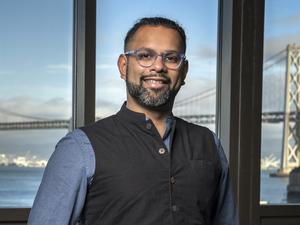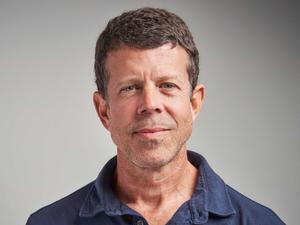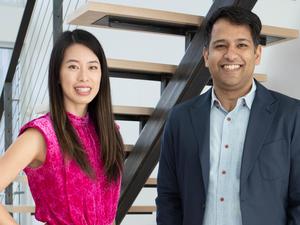
Editor note: In our 2022 Startups to Watch feature, the Silicon Valley Business Journal and San Francisco Business Times present startups and founders doing unique things in the San Francisco Bay Area. Byteboard is one of 20 that we have profiled — to read more about our mission and the other startups we're featuring, click here.
Interviewing for technical jobs in the technology industry can be a long and frustrating process for software engineers, and two former Googlers are trying to make it a better, faster experience with less bias.
"We started venting about our technical interview experiences with various companies in the Valley with each other and started reading about many other negative experiences historically underrepresented individuals have had with the technical interview process," said Sargun Kaur, co-founder and CEO of Byteboard. "The interview process was broken, and something better needed to exist."
She compares the experience to asking an NBA recruit to draw out theoretical plays instead watching them actually play ball. Byteboard has redesigned the interview process to be more realistic and skills-based. Through Byteboard, the evaluation process is also anonymized to strip out unconscious biases.
Amazon famously scrapped an AI-based tool in 2018 that ranked job candidates. It’s fatal flaw? It discriminated against women. The tool was reportedly never used, but its demise highlights the need to weed out biases in hiring and technology.
Byteboard
- Founded: 2019
- Founders: CEO Sargun Kaur and Chief Product and Technology Officer Nikke Hardson-Hurley
- What it does: Developing a hiring platform for technical workers
- HQ: San Francisco
- Employees: 8
- Total funding: undisclosed
What's the worst part of the interview process for software engineers? Software engineering interviews predominantly take the form of algorithmic pop-quizzes or random language trivia that is very theoretical and not similar to the work software engineers practice day-to-day. This creates an undue burden on job-seeking candidates to learn interview-specific knowledge that does not align with the job they are interviewing for.
Moreover, in an industry that now has a diversity of talented engineers that are now coming from nontraditional backgrounds (bootcamps, self-taught, etc), traditional algorithmic interviews create false negatives when it comes to hiring and drive inequitable outcomes.
Can you briefly describe one of your own worst interview experiences? The first time I interviewed for a FAANG company while I was a senior in college at U.C. Berkeley, I got to the on-sites which included five rounds of technical interviews.
I had spent weeks memorizing and completing most of the problem sets in “Cracking the Coding Interview” to prepare for my interviews. The first three rounds went great. I knew the trick to the algorithm and I could write it clearly on the whiteboard (the interview standard tool of choice which is not similar to how engineers typically code … they use computers).
My fourth round, I was asked a bit-wise operations question which I completely blanked on. I had forgotten to practice that section the night before and blew my interview. I later went on to work at Google for seven years as an engineer on Google Maps and Photos and do really well, but my interview experiences really shook my confidence on my abilities to be a software engineer.
What was the “aha” moment behind your startup? We did a lot of user studies initially with engineers, asking them what they did day-to-day on their jobs. We compiled those interviews into skill categories and then did a two-day sprint identifying ways to evaluate for those skills. At the end of that exercise, we had a rough idea of what the construction of our ideal interview product was going to look like.
To come to that solution through a very methodical research process, and know that it was clearly solving for our primary problem was an incredible moment of clarity, direction and excitement. From there, we were off to the races!
What was the biggest challenge you faced in building your startup? We were very resource constrained early on in our journey as we were building inside a corporate incubator (Google's Area 120). We learned to be incredibly scrappy and focused as a result.
What is the best way for you and your team to work? We're a fully distributed team that gets together for weeklong quarterly retreats and habitually throughout the quarter when we have a critical mass of people in the same city.
It's important to have face-to-face time and build trust among the people we work so closely with for such a large part of our day, but it also works well to have a team that can be anywhere and from anywhere that's not limited to a certain location. This has also enabled us to build a team that is very diverse (50% women, 63% BIPOC).
How are your going to scale your business and grow over the next 12 months? We're looking to quickly grow our team by 2-3x in the next 12 months and have a few exciting launches upcoming that are going to continue to meet the growing asks of our customers.







